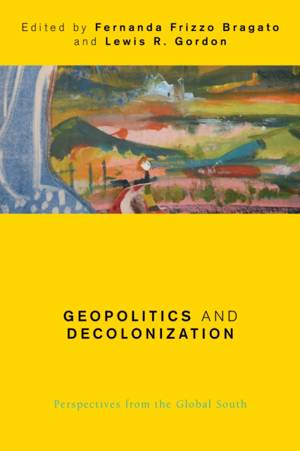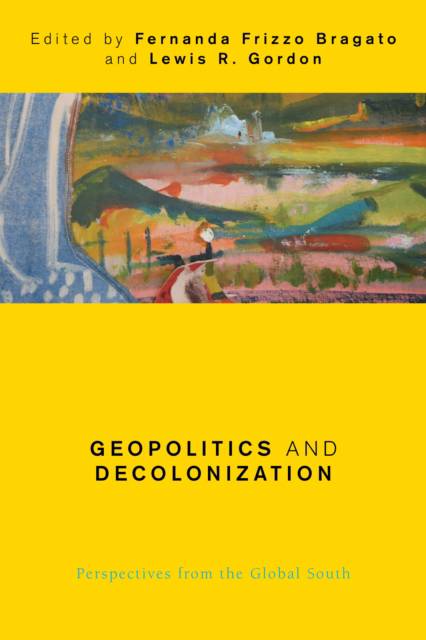
- Afhalen na 1 uur in een winkel met voorraad
- Gratis thuislevering in België vanaf € 30
- Ruim aanbod met 7 miljoen producten
- Afhalen na 1 uur in een winkel met voorraad
- Gratis thuislevering in België vanaf € 30
- Ruim aanbod met 7 miljoen producten
Zoeken
Geopolitics and Decolonization
Perspectives from the Global South
€ 94,95
+ 189 punten
Omschrijving
Gathering researchers from or towards Global South epistemologies, this book enriches the debate on crucial questions for liberation in the South and the improvement of South relations. It argues that coloniality and colonialism are not outdated phenomena of the historical past, but contemporary marks that remain repressed. The dominance of Eurocentric paradigm in the social sciences explains the long-lasting detachment between thinkers and politicians from the Global South, which have been historically presented according to their respective relations with the West (Europe and North America). The dialogue on common problems and challenges to people and societies in the South, largely derived from their colonial past and condition, is still sparing. This book actively promotes and demonstrates the value of intercultural dialogue and debate amongst voices from within the Global South on issues to do with decoloniality, cultural rights, law and politics.
Specificaties
Betrokkenen
- Uitgeverij:
Inhoud
- Aantal bladzijden:
- 262
- Taal:
- Engels
- Reeks:
Eigenschappen
- Productcode (EAN):
- 9781786610881
- Verschijningsdatum:
- 17/05/2019
- Uitvoering:
- Paperback
- Formaat:
- Trade paperback (VS)
- Afmetingen:
- 152 mm x 229 mm
- Gewicht:
- 390 g

Alleen bij Standaard Boekhandel
+ 189 punten op je klantenkaart van Standaard Boekhandel
Beoordelingen
We publiceren alleen reviews die voldoen aan de voorwaarden voor reviews. Bekijk onze voorwaarden voor reviews.










